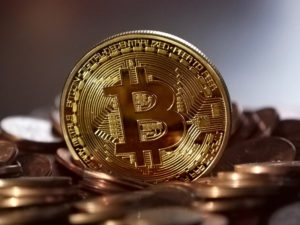A dollar is a dollar is a dollar… or is it? The price of a commodity, whether it be a bouquet of flowers or a pint of milk, can vary greatly even from one neighborhood to the next within the same city. The strength of the American dollar was once tied to the value of gold in a system aptly called the gold standard, but it was abandoned during the Great Depression. Because of this, critics argue that the value of the dollar is ephemeral, that it’s really just a piece of paper that governments print and whose value has no basis in reality. However, the world of monetary systems has been rocked recently and, in this brave new world of currency, governments are no longer a necessary party.

Cryptocurrency has changed the game, but it still needs to play by some of the same rules- like maintaining some rhyme or reason for it’s valuation. The way Bitcoin– the biggest player in the market- does this is tied to electricity consumption. When it was initially released in 2009, one Bitcoin was worth less than a penny. It is currently worth approximately $6,750– down from its all time high of $19,039.01 in December of 2017. This virtual currency is completely decentralized and relies on its users to regulate the transaction ledger (“Bob sends Mary two Bitcoins on such and such date”) and in fact has incentivized the participation of the community by awarding a certain amount of Bitcoins (currently 12.5) to whomever can figure out a given math problem the quickest; in this way, Bitcoin ensures that its ledgers are updated accurately and in a timely manner. They don’t want Bob to send both Mary and John two Bitcoins a piece when he’s only got 3 Bitcoins in his account!
Miners (the term for those hard at work updating the transaction ledger) aren’t just figuring out simple arithmetic; it takes the computational prowess of highly specialized computers to pump out the answers. The standard “mining” computer makes millions of guesses per second. Collectively, the entire Bitcoin community makes several quintillion – a quintillion is a billion billion- guesses per second. This takes a whole lot of wattage. In November of last year, Bitcoin’s energy usage made headlines when it was uncovered that it was on par with the entire power consumption of Ireland. Since then, it’s grown to nearly three times that of Ireland at 73 TW/h annually, according to some sources.
When Bob sends Mary those two Bitcoins to rub together, enough energy is expended to power 31 American homes for a day. This isn’t a problem in and of itself, especially for those miners who are plugging away in places where electricity is supplied through renewable methods. For example, there’s been vibrant mining communities springing up in the Pacific Northwest of the United States, particularly in the state of Oregon, where hydroelectricity is the order of the day. Unfortunately, a whopping 60% of all Bitcoin mining activity takes place in China, where nearly 70% of electricity comes from mining for coal, perhaps the dirtiest of all fossil fuels. Because of this, Bitcoin is responsible for releasing 35 megatonnes of CO2 into the atmosphere every year- the equivalent of nearly 2 million transatlantic flights.
The argument for the defense rests upon a plea for patience. Every great venture, idea, and revolutionary concept that eventually became the industry standard was, at some point in time, drastically less efficient. Human beings are problem solvers and now, at least, they’ve got a problem to chew over. They point to the latest mining computers that- either because of criticism from environmental activists, or complaints from miners with astronomical electricity bills- are now more energy efficient than their predecessors.
Still, as more and more people are overcome with Bitcoin fever, the energy footprint continues to grow without signs of slowing. This new type of currency is on track to overcome the traditional banking industry’s energy usage of 100 TW/h per year in short order and when they do, they better hope that the technology catches up with them. Otherwise, this new monetary system that prides itself for being unfettered by government involvement, may soon find itself caught in a web of increased regulations.


